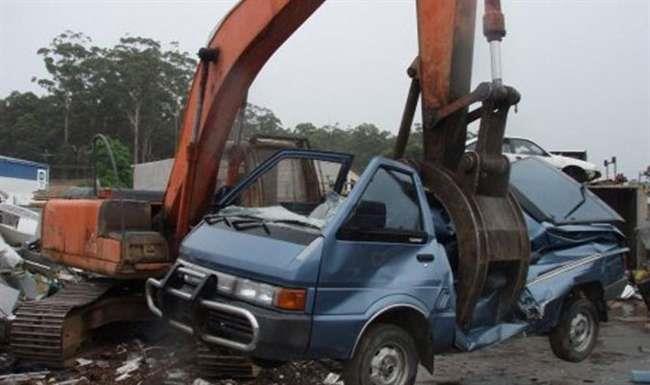News
Govt’s scheme to scrap old vehicles may be delayed again
The programme aims to ensure phasing out of older polluting vehicles and enable their replacement with fuel efficient and environment friendly vehicles.
Implementation of the central government’s ambitious vehicle scrapping policy, which proposes to impose a cap of 20 years on the life of all commercial vehicles, may be delayed further. The reason: reluctant state governments.
In a federal set-up like India’s, it is “extremely difficult” to give effect to any policy unless state governments are on board, explained a senior official at the ministry of road transport.
“...so we are going through a consultative process with the states. We had written to the states asking their views, so it may take a few months to go through that; they have not responded yet,” the senior official said on the condition of anonymity.
The policy, which was to be sent to the Cabinet for approval earlier this year, has faced multiple roadblocks.
Hindustan Times reported in July that the Prime Minister’s Office (PMO) on July 9 returned the Cabinet note sent by the road transport ministry with a raft of directions, including more active consultations with states, before it is implemented.
The PMO also directed that the scheme be made “voluntary” and “linked with incentives which should originate from manufacturers.”
The vehicle scrapping policy is partly aimed at improving air quality by replacing older, polluting vehicles with environment-friendly and fuel-efficient ones.
India has 700,000 trucks, buses and taxis manufactured before December 31, 2000 that contribute 15-20% of vehicular pollution, according to an analysis by AT Kearney based on data from the Central Pollution Control Board and Union road ministry emission norms. According to the study, trucks and buses account for just 2.5% of the total fleet, yet they contribute over 60% of pollution.
The ministry had expected 350,000 vehicles to be scrapped in the next two to three years if the scheme, welcomed by vehicle makers, received the Cabinet’s green signal.
The fact that five states are due to go to the polls in November-December, followed by the general election in 2019, may be one reason for the delay in states responding.
“Some states are not happy. States have to be the implementing agency and they are going to be as much part of the implementation, like the Motor Vehicle Act though it’s a central act,” a second ministry official said, also on the condition of anonymity.
“Ninety percent of functionality and implementation is with the state and any state in a federal set-up would be zealous about maintaining its own independence. Consultations with them are still going on, now that elections have been announced, it’s moving at an even slower pace. Discussions on incentives is taking a lot of time. Therefore, only after consultation will we be able to take it forward,” another ministry official said.
An official at the Society of Indian Automobile Manufacturers said vehicle scrapping centres need to be in place before the policy is implemented.
“...if you start scrapping vehicles tomorrow, where will you send them for scrapping,” he said on the condition of anonymity. “Either way, scrappage is already happening but the incentive scheme is yet to come and I think there is some discussion that is still required in this. Getting states on board is part of our political system. GST (goods and services tax) took nine years to implement because of the states, and in a democracy, decisions will take time.”
The government has also issued a notification mandating implementation of Bharat Stage -VI (BS-VI) emission norms from April 1, 2020, skipping an intermediate stage, for all vehicles. Vehicle emission standards were introduced for the first time in India in 2000.
“From what I know, the combined effect of the incentives, along with the policy, will be quite huge. Given the current fiscal situation of the central government as well as the states, I doubt how much new incentives can be passed on to the users,” said Kushal Singh, a partner at consulting firm Deloitte India.
“Another issue is that with the advent of GST, the financial condition of the states has virtually remained the same and didn’t improve the way it was predicted with GST coming in. Therefore, expecting the states also to give some incentives at this point of time may be a Herculean task. My guess is that it will take more time for the policy to be announced.”
